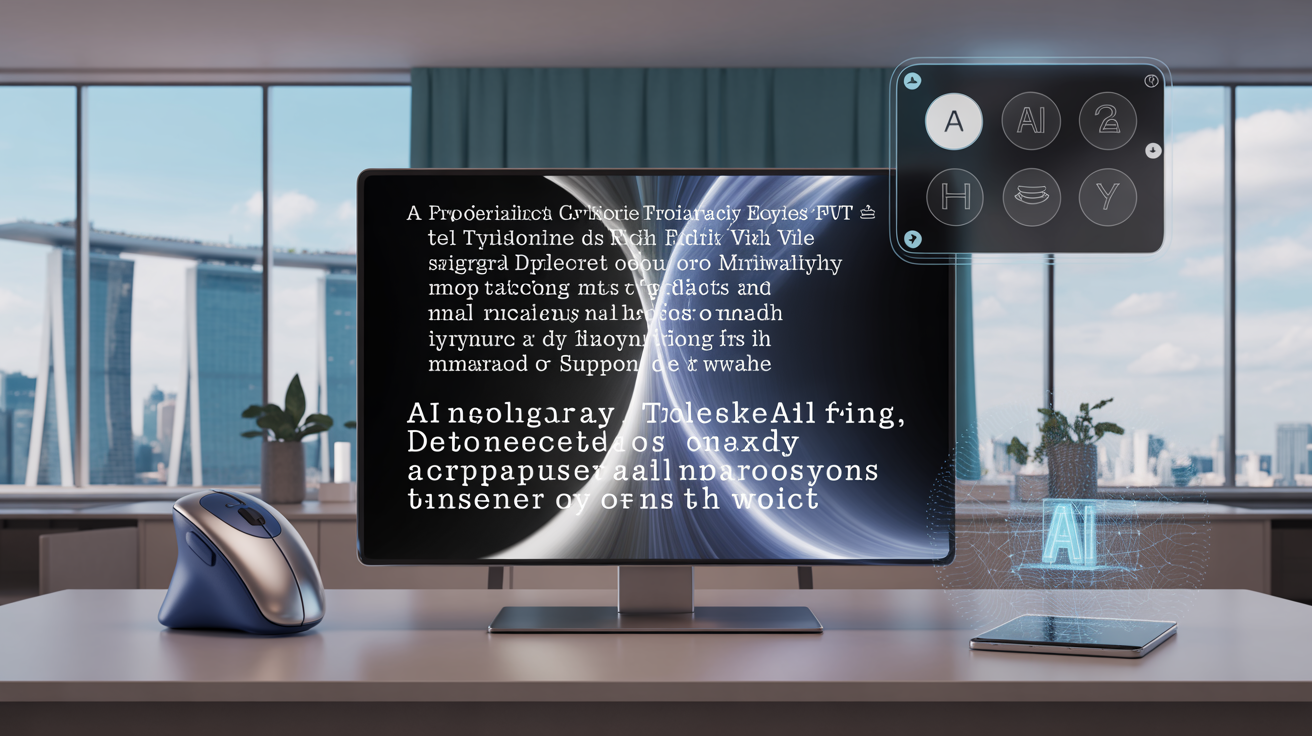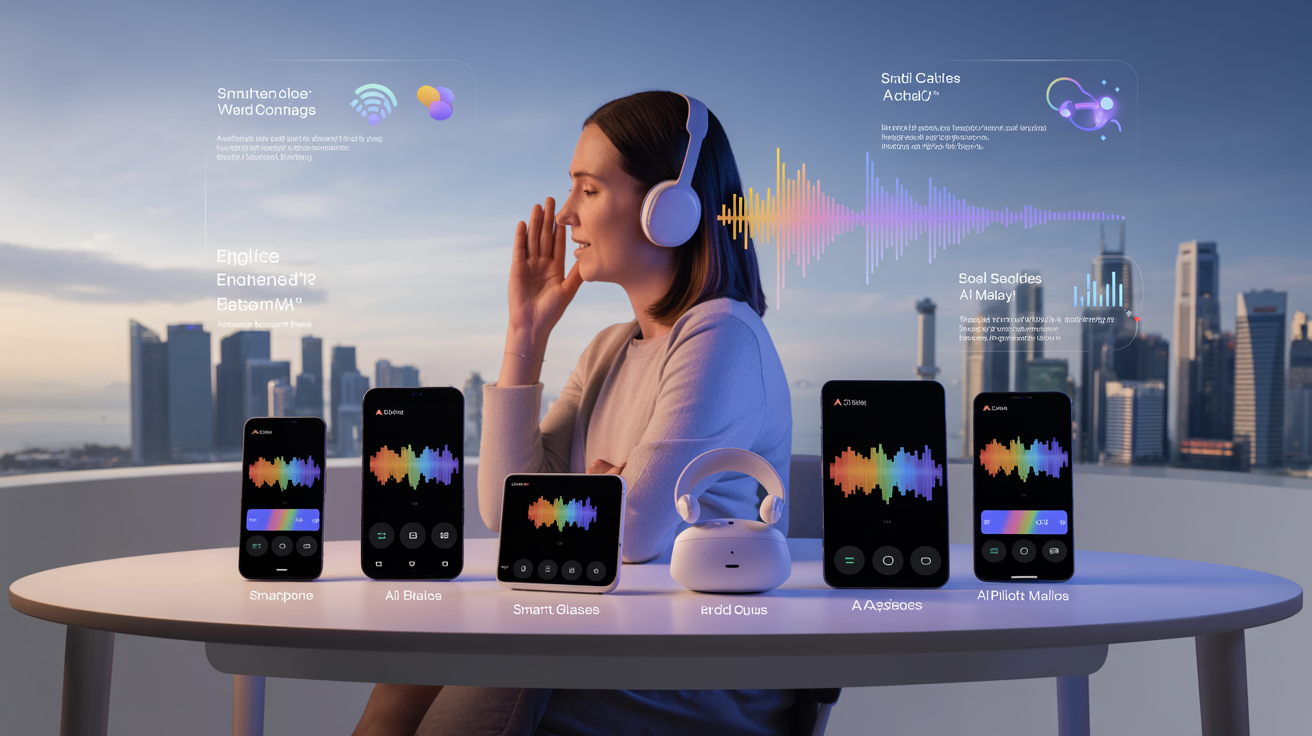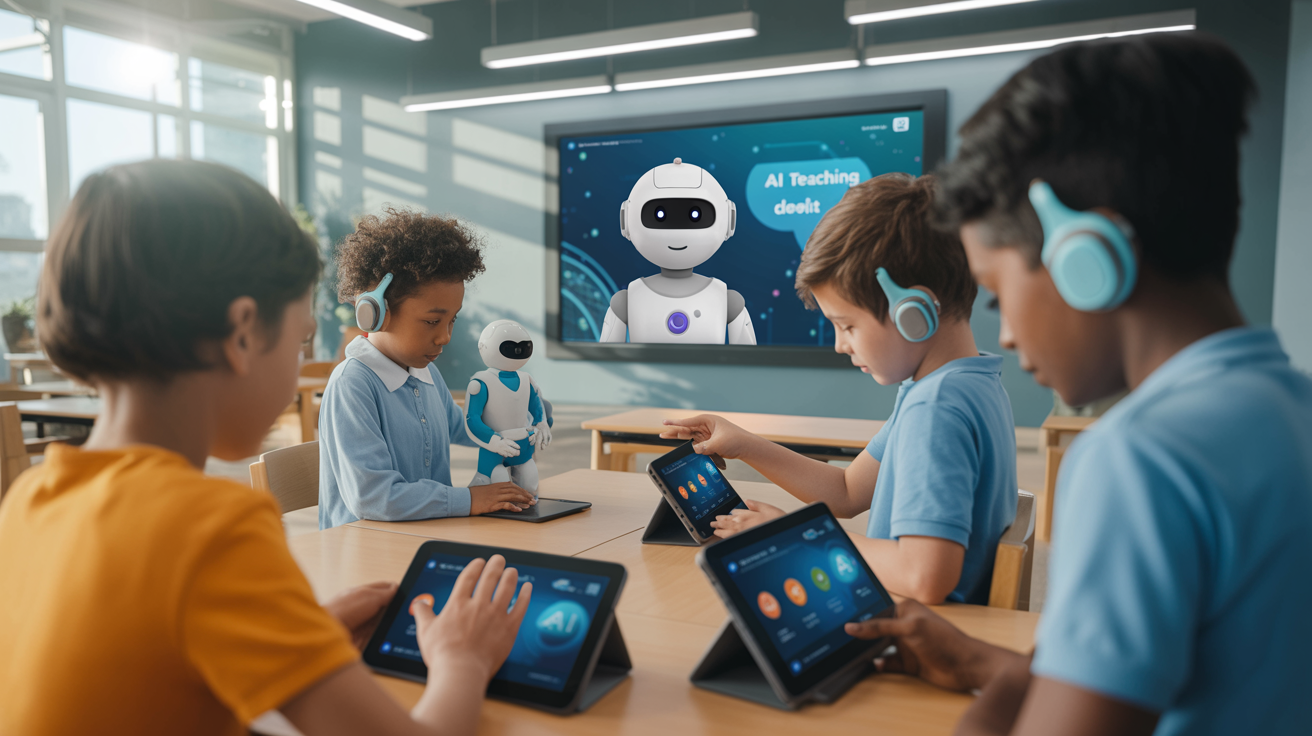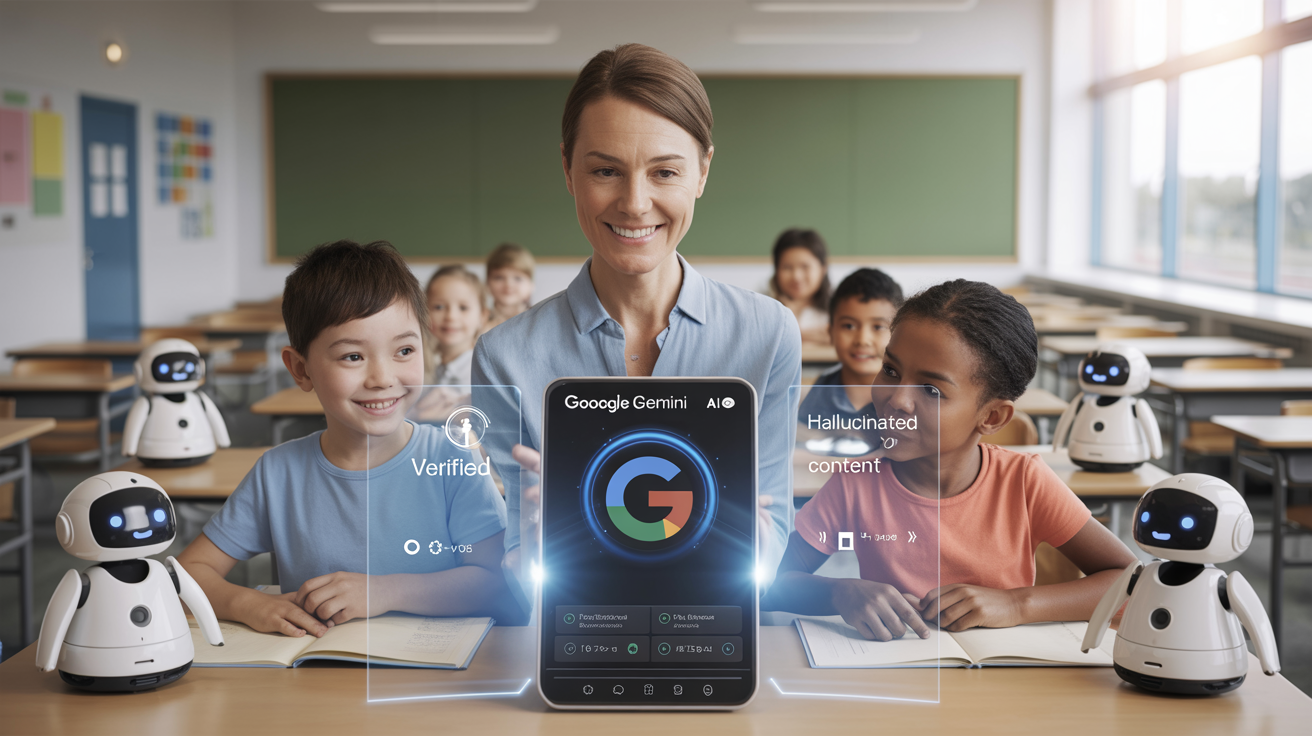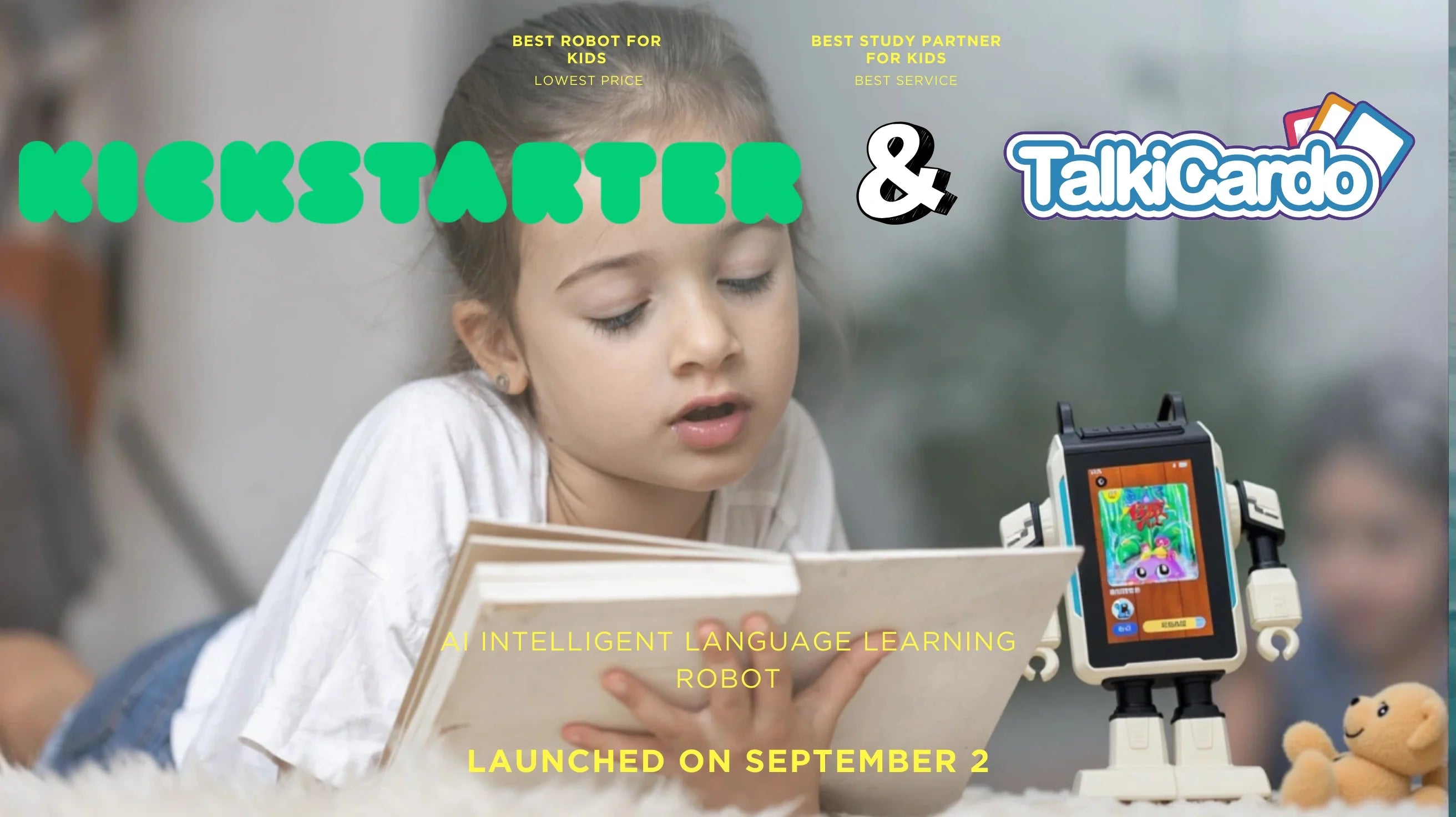
Case Study: How an AI Robot Helped a 5-Year-Old Achieve a Remarkable Vocabulary Breakthrough
Posted by Aipilot on
- Introduction
- Case Study Overview
- The Challenge: Limited Vocabulary Development
- The Solution: TalkiCardo AI Companion
- Implementation & Methodology
- Results & Analysis
- Key Success Factors
- Parent Perspective
- Educator Insights
- Conclusion
When 5-year-old Aiden began struggling to express himself compared to his peers, his parents became concerned about his vocabulary development. Despite being otherwise bright and engaged, Aiden's limited word bank was affecting his confidence in social settings and his ability to articulate his thoughts. His parents faced a common but significant challenge: how to accelerate their child's language acquisition in a way that was natural, engaging, and developmentally appropriate.
This case study documents Aiden's remarkable six-month journey with AIPILOT's AI companion robot, which led to a 187% increase in his active vocabulary and significant improvements in sentence complexity, conversation skills, and overall confidence. More importantly, it explores how AI-powered learning tools can create personalized, emotionally supportive environments that transform language development for young children.
The results challenge traditional assumptions about technology's role in early childhood education and demonstrate how artificial intelligence, when thoughtfully implemented, can create opportunities for accelerated learning while maintaining the emotional connection essential for children's development.
Case Study Overview
This six-month case study followed Aiden, a 5-year-old boy from Singapore with age-appropriate cognitive abilities but a vocabulary that tested in the 25th percentile for his age group. Working with speech-language pathologists and educational psychologists, we documented Aiden's language development journey using AIPILOT's AI companion robot as a supplementary learning tool alongside traditional educational activities.
The study employed multiple assessment methods, including standardized vocabulary tests, recorded speech analysis, parent interviews, and behavioral observations, to create a comprehensive picture of Aiden's progress. Assessments were conducted at baseline, 30 days, 90 days, and 180 days to track development trajectories across different linguistic dimensions.
The Challenge: Limited Vocabulary Development
Prior to the study, Aiden exhibited several challenges common to children with vocabulary delays:
Aiden's active vocabulary included approximately 950 words, significantly below the 1,500-2,500 word range typical for children his age. He struggled particularly with abstract concepts, descriptive language, and words with multiple meanings. When attempting to communicate complex ideas, he would often become frustrated and resort to simpler expressions or physical gestures.
In social settings, Aiden would frequently withdraw from conversation or play activities that required verbal negotiation. His parents noted that while he understood more complex instructions (demonstrating good receptive language), his expressive language lagged noticeably, creating a communication gap that affected his confidence and social interactions.
Traditional vocabulary building exercises held Aiden's attention briefly, but he quickly lost interest in flashcards, vocabulary worksheets, and other static learning tools. His parents had tried numerous educational apps, but found that most failed to adapt to his specific needs or engage him consistently over time.
The Solution: TalkiCardo AI Companion
After consulting with speech-language professionals, Aiden's parents introduced him to TalkiCardo, AIPILOT's AI-powered companion designed specifically for children's language development. Unlike traditional learning tools, TalkiCardo combines advanced AIGC (Artificial Intelligence-Generated Content) technology with emotional intelligence capabilities to create personalized learning experiences.
The TalkiCardo system used in this case study featured several key components:
Adaptive Learning Algorithm
TalkiCardo's core technology uses large-scale AI models to analyze a child's current vocabulary, speech patterns, and interests. It then creates customized interactions that introduce new words at the optimal pace – challenging enough to promote growth but familiar enough to build on existing knowledge. The system continuously adjusted to Aiden's progress, introducing new vocabulary when he demonstrated mastery of previously introduced words.
Immersive Role-Playing Scenarios
Rather than teaching vocabulary in isolation, TalkiCardo engaged Aiden in contextual role-playing scenarios that naturally incorporated target words. These imaginative contexts – from space exploration to underwater adventures – created meaningful associations for new vocabulary while making learning feel like play.
Emotional Intelligence & Support
Critical to the system's success was its ability to recognize Aiden's emotional states during learning sessions. When it detected frustration, TalkiCardo would adjust difficulty levels or offer encouragement. When it recognized excitement, it would build on his enthusiasm by expanding related vocabulary. This emotional responsiveness created a psychologically safe learning environment.
Multimodal Learning Integration
The TalkiCardo system integrated visual, auditory, and interactive elements to reinforce vocabulary acquisition through multiple pathways. This approach accommodated Aiden's preference for visual learning while strengthening his auditory processing skills.
Implementation & Methodology
Aiden's interaction with TalkiCardo followed a structured yet flexible implementation plan developed in consultation with educational specialists:
Initial Assessment Phase
The first week was dedicated to baseline assessment and system calibration. TalkiCardo conducted playful conversation sessions with Aiden that, behind the scenes, were analyzing his vocabulary range, sentence complexity, pronunciation patterns, and topics of interest. This created a comprehensive linguistic profile that served as the foundation for personalized learning.
Initial assessments were verified by a speech-language pathologist who confirmed that TalkiCardo's automated evaluation aligned with professional assessment. Key metrics established during baseline testing included:
- Active vocabulary size: 950 words
- Average sentence length: 3.7 words
- Question formation skills: Limited to basic forms
- Descriptive language usage: Minimal (primarily size and color)
- Abstract concept vocabulary: Significantly below age expectations
Daily Interaction Protocol
Aiden's parents established a consistent routine of two 20-minute sessions with TalkiCardo daily – one in the morning and one in the early evening. This schedule was designed to avoid fatigue while providing regular exposure. Sessions were structured as conversational play rather than formal lessons, with TalkiCardo initiating imaginative scenarios that incorporated target vocabulary.
The AI system was connected to the AI Teaching Assistant visualization platform, which allowed parents and speech therapists to monitor progress, review conversation transcripts, and adjust learning parameters as needed. This integration provided valuable insights into Aiden's learning patterns and allowed for coordinated support between technology and human guidance.
Progressive Challenge System
TalkiCardo employed a sophisticated scaffolding approach that introduced new vocabulary in three phases:
- Recognition phase: New words were first introduced in context with visual and conversational cues to build familiarity
- Guided usage phase: TalkiCardo created scenarios that naturally elicited use of the target words
- Independent application phase: The system looked for spontaneous use of previously taught vocabulary in new contexts
Words moved through this progressive system at Aiden's own pace, with some vocabulary requiring multiple exposures and others being incorporated quickly into his active speech.
Results & Analysis
The results of Aiden's six-month journey with TalkiCardo demonstrated remarkable progress across multiple dimensions of language development:
Vocabulary Growth
The most dramatic improvement was in Aiden's active vocabulary size, which expanded from 950 words at baseline to 2,730 words by the end of the six-month period – a 187% increase that moved him from the 25th percentile to the 75th percentile for his age group. This vocabulary expansion was not merely quantitative but showed substantial qualitative improvements:
- Abstract concept vocabulary increased by 215%
- Emotion and feeling words expanded from 24 to 78
- Action verb vocabulary doubled from 215 to 431
- Descriptive adjectives showed the most significant growth, increasing from 86 to 307
Language Complexity
Beyond raw vocabulary counts, Aiden demonstrated substantial gains in language complexity and usage:
- Average sentence length increased from 3.7 words to 6.2 words
- Complex sentence structures (using conjunctions like 'because,' 'although,' and 'when') increased from rare occurrences to 35% of spoken sentences
- Question formation skills expanded to include how, why, and what-if questions
- Narrative sequencing improved, with Aiden able to relate events in temporal order using appropriate transitional phrases
Social Communication Impact
Perhaps most significantly, Aiden's newfound vocabulary translated into meaningful improvements in real-world communication:
- Playground observations showed a 160% increase in verbal initiations with peers
- Frustration episodes during communication attempts decreased by 84%
- Teacher reports indicated significantly more classroom participation and willingness to answer questions
- Parent logs documented more elaborate and detailed conversations at home
Cognitive Transfer Effects
Interestingly, assessments revealed improvements in adjacent cognitive areas, suggesting that enhanced vocabulary had spillover benefits:
- Improved ability to follow multi-step instructions
- Enhanced story recall and reading comprehension
- Greater facility with early mathematical concept description
- More sophisticated problem-solving verbalization
The data visualization below illustrates Aiden's vocabulary growth trajectory compared to typical developmental expectations:
Figure 1: Aiden's vocabulary growth trajectory (blue line) compared to age-typical development range (gray band)
Key Success Factors
Our analysis identified several critical factors that contributed to the effectiveness of the AI-assisted learning approach:
Personalization Beyond Academics
Unlike standard educational software that personalizes only for academic level, TalkiCardo adapted to Aiden's interests, emotional responses, attention patterns, and learning preferences. This multi-dimensional personalization maintained high engagement levels throughout the six-month period. The system even adjusted interaction styles based on time of day, recognizing that Aiden was more receptive to challenging vocabulary in morning sessions and more responsive to storytelling approaches in evening sessions.
Emotional Scaffolding
TalkiCardo's emotional intelligence capabilities created a learning environment free from judgment or pressure. When Aiden struggled with a new word or concept, the system detected frustration signals and provided encouragement while adjusting the difficulty level. This emotional scaffolding prevented the development of negative associations with challenging vocabulary and fostered a growth mindset approach to language learning.
The emotional connection Aiden formed with his AI companion also created a psychological safety zone for linguistic experimentation. He became increasingly willing to attempt complex expressions and new vocabulary with TalkiCardo before using them in more socially risky human interactions.
Contextual Learning Design
Rather than teaching vocabulary through direct instruction or memorization, TalkiCardo embedded new words in narrative contexts and imaginative scenarios. This approach created multiple memory anchors for each word and demonstrated proper usage in natural conversation. For example, when introducing weather-related vocabulary, TalkiCardo created an interactive story about space explorers visiting planets with different climates, naturally incorporating terms like 'humid,' 'precipitation,' and 'forecast' in meaningful contexts.
Balanced Human-AI Integration
A crucial element of the program's success was its integration with human interaction rather than replacement of it. Parents were equipped with weekly reports highlighting new vocabulary Aiden had learned, allowing them to reinforce these words in daily conversations. The AI Teaching Assistant platform provided conversation transcripts and learning insights that helped adults in Aiden's life support his language development consistently across different environments.
The system's AI Mouse component, which parents occasionally used during family time, helped transform voice commands to text, creating a visible connection between spoken and written language that reinforced vocabulary retention.
Parent Perspective
Aiden's parents provided valuable insights into how the AI companion integrated into family life and supported their child's development:
"What surprised us most wasn't just the number of new words Aiden learned, but how naturally he began using them in everyday conversations. Within weeks, he went from struggling to express simple needs to telling elaborate stories about his day using vocabulary I didn't even realize he knew. The emotional difference has been just as significant – his frustration has decreased dramatically, and he's so much more confident in social situations now.
What I appreciate about TalkiCardo is that it never felt like we were pushing him into 'extra lessons' or creating pressure. He genuinely looks forward to his robot friend and often asks for additional time with it. As parents, we've learned so much about how to support his language development from watching their interactions and reviewing the insights from the AI Teaching Assistant platform."
- Sarah L., Aiden's mother
Aiden's parents also noted unexpected benefits beyond the targeted vocabulary development:
- Improved bedtime routine as Aiden became capable of better expressing his needs and engaging in calming pre-sleep conversations
- More detailed reporting of school experiences, allowing parents to better support his educational journey
- Enhanced ability to articulate emotions, leading to more effective resolution of typical childhood frustrations
- Increased interest in books and stories as his comprehension and vocabulary expanded
Educator Insights
Aiden's preschool teacher and speech-language pathologist provided professional perspectives on his progress:
"The transformation in Aiden's classroom participation has been remarkable. Before, he would often watch from the periphery during group discussions, but now he's one of our most enthusiastic contributors. His ability to ask thoughtful questions and express complex ideas has developed at an accelerated rate compared to what we typically observe with traditional interventions alone.
Particularly noteworthy is how his newfound vocabulary has supported peer relationships. He's now able to negotiate roles during pretend play and resolve conflicts verbally rather than becoming frustrated. These social language skills are often the most challenging to develop through structured interventions, so seeing this natural progress has been especially encouraging."
- Lin Wei, Early Childhood Educator
The speech-language pathologist who consulted on the case noted that the AI companion created several advantages over traditional vocabulary intervention approaches:
- Consistency of implementation – the AI delivered perfectly consistent models of pronunciation and usage
- Intensity of exposure – the frequency of interaction provided more language learning opportunities than typical therapy sessions alone
- Immediate reinforcement – the system provided real-time feedback that strengthened learning pathways
- Progress tracking – detailed analytics allowed for precise monitoring of which words were moving from receptive to expressive vocabulary
Conclusion
Aiden's case demonstrates the transformative potential of thoughtfully designed AI companions in supporting children's language development. The 187% vocabulary increase achieved over six months represents not just statistical improvement but meaningful enhancement of his ability to express thoughts, connect with others, and engage with learning opportunities.
Several key conclusions emerge from this case study:
- AI companions can create uniquely effective learning environments by combining personalization, emotional responsiveness, and consistent availability in ways difficult to achieve through traditional methods alone.
- Technology-assisted language development works best as a complement to human interaction, not a replacement. The integration between AI learning sessions and parent/teacher reinforcement amplified outcomes.
- Emotional connection is a critical component of effective vocabulary acquisition. TalkiCardo's ability to create a psychologically safe learning environment free from judgment or performance pressure facilitated Aiden's willingness to attempt new language forms.
- The benefits of enhanced vocabulary extend far beyond language skills, positively impacting social confidence, emotional regulation, academic engagement, and cognitive development.
While Aiden's results were particularly dramatic, they align with broader patterns observed in AIPILOT's work with children facing various language development challenges. These findings suggest significant potential for AI-assisted approaches to complement traditional educational and therapeutic methods for supporting children's linguistic development.
This case study illuminates how artificial intelligence can create meaningful breakthroughs in early childhood language development when designed with both cognitive and emotional intelligence at its core. For Aiden, TalkiCardo wasn't merely an educational tool but a supportive companion on his language journey, creating a safe space for exploration, making mistakes, and ultimately mastering new vocabulary at an accelerated pace.
The emotional dimension of language learning – often overlooked in educational technology – proved to be a critical success factor. By recognizing frustration, celebrating achievements, and adapting to Aiden's changing emotional states, the AI companion maintained engagement and built confidence alongside vocabulary.
For parents, educators, and language development professionals, this case demonstrates that AI-powered learning tools like those developed by AIPILOT can form an invaluable part of a comprehensive approach to supporting children's communication skills – not by replacing human connection, but by creating additional opportunities for personalized practice, exploration, and growth.
Discover How AIPILOT Can Support Your Child's Language Development
Interested in exploring how AI companions like TalkiCardo could benefit your child's vocabulary development and communication skills? AIPILOT offers a range of AI-powered learning solutions designed to create personalized, emotionally supportive educational experiences.
Visit AIPILOT today to learn more about our innovative language learning technologies and how they can help your child break through language barriers while building confidence and communication skills.
Explore AIPILOT Solutions












